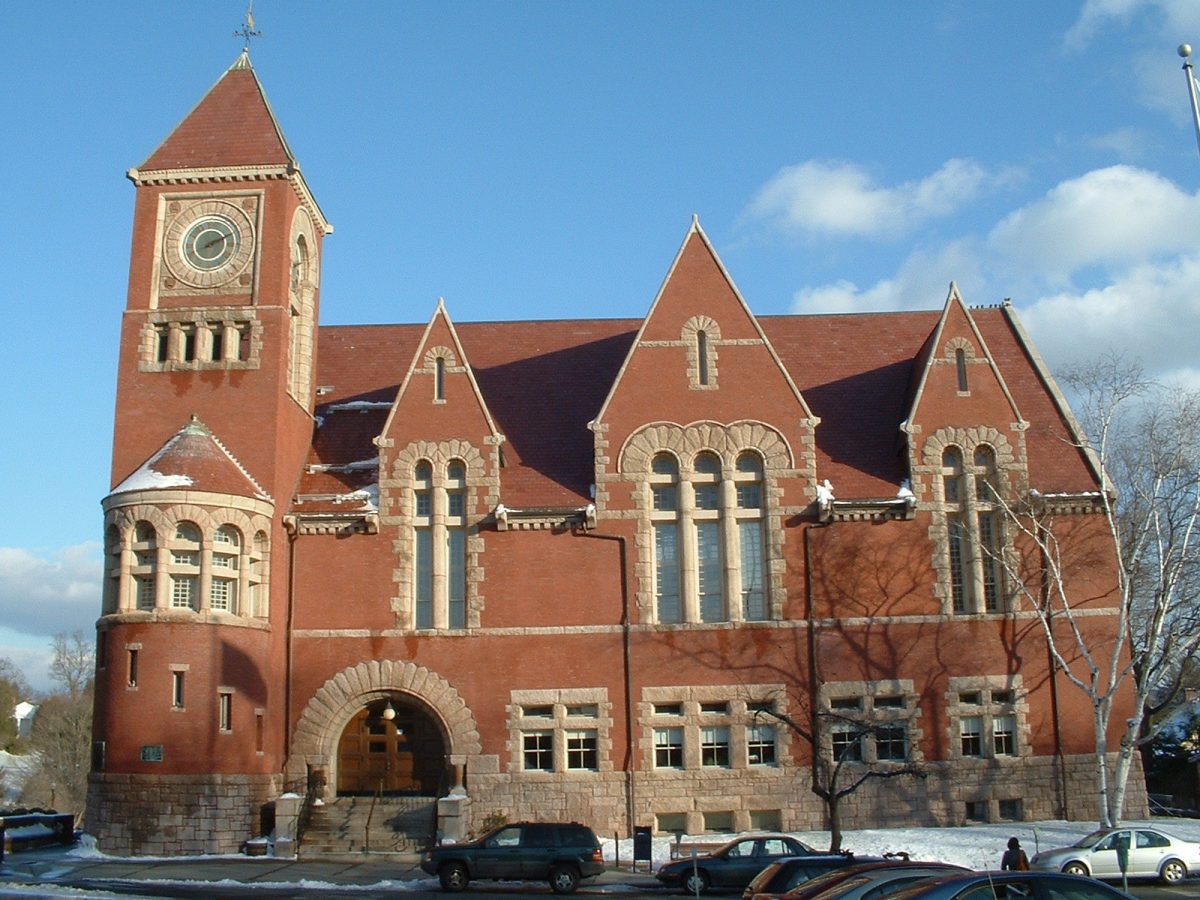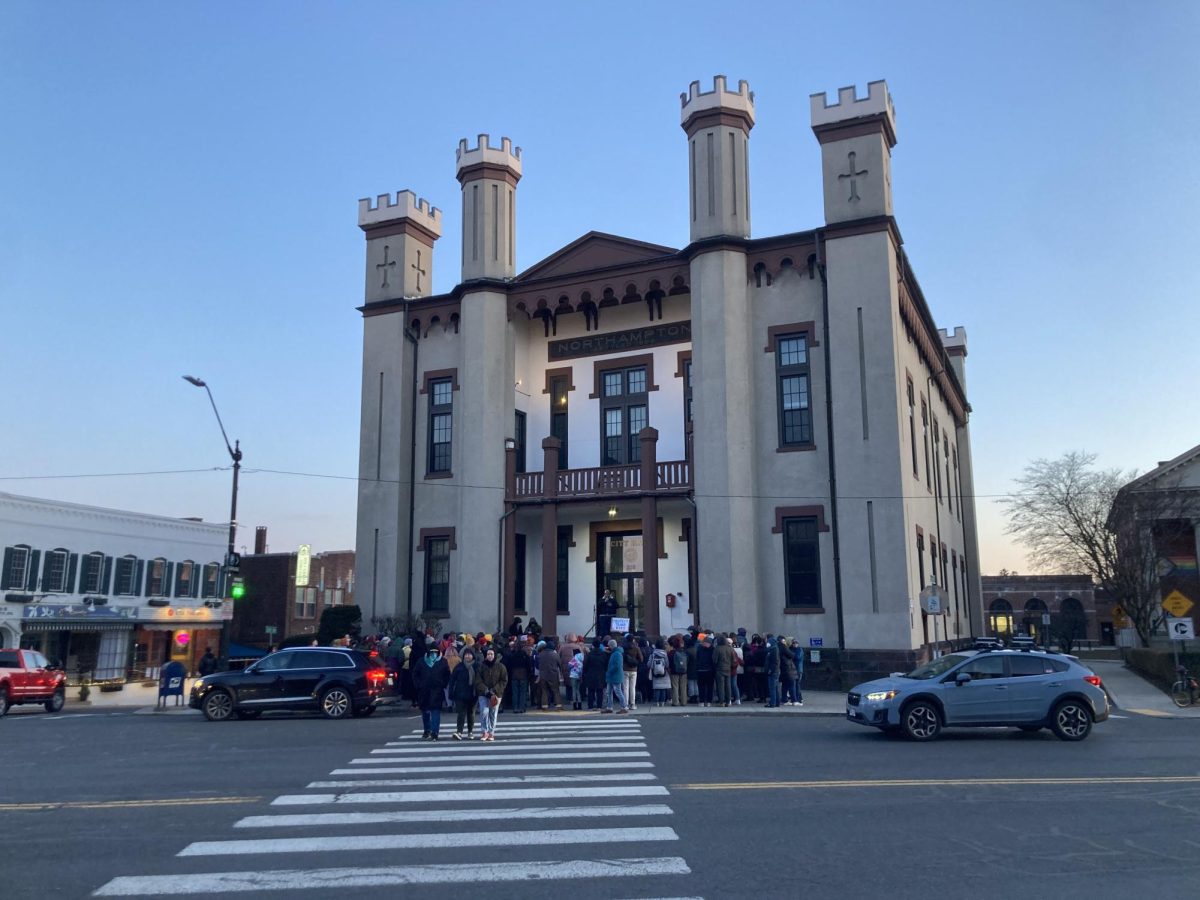
As questions arise about a proposed $250 Information Technology student fee, a collective of University of Massachusetts students is taking aim at those who will decide the fee’s fate.
A Facebook event titled “UMass IT Fee Challenge” was created June 4 to assist UMass students in openly voicing concerns about the fee, which the University says is necessary to improve the campus wireless network. The fee can only be implemented if approved by the UMass Board of Trustees, which will meet later this month.

The goal of the “IT Fee Challenge” is to encourage students to call specific members of the board directly. The event posted the phone number of the board’s vice chairmen as well, as the number to the executive office, and provides students with a script to use when calling. The event asks those who do call to share a post on Facebook and tag 20 friends to spread the message.
“At this point, passing the fee is completely in the Board of Trustees’ hands,” said Jeremy Tibbetts, a host of the event and a UMass Student Government Association senator.
“What it does is it creates a significant amount of pressure on (the board) in that what they’re doing could be harmful.”
The event comes on the heels of a petition drafted in protest of the fee, which began circulating last week. More than 1,300 people signed the petition, which was accompanied by a letter to the board by the Student Administration Accountability Coalition highlighting the financial stress the fee would cause to the student body.
Charlotte Kelly, a UMass senior and a host of the UMass IT Fee Challenge, was involved in forming both the petition and the challenge. She said the group never heard from the board following the petition, which led to the next step, a public challenge.
As of Saturday morning, 96 people joined the event via Facebook, while more than 1,300 were invited.
Tibbetts said it was “clear” the board wasn’t showing a willingness to hear from students. He also felt that students weren’t afforded a chance to provide adequate input.
“The Board of Trustees understands that we won’t accept them not being transparent with us and we won’t accept driving students further into debt to favor these charges,” he said.
Questions remain regarding the process
Both Tibbetts and Kelly said they felt the University didn’t supply students with enough information before announcing the proposed fee.
On March 23, Vice Chancellor for Information Services and Strategy and Chief Information Officer Julie Buehler and her staff met with the SGA to discuss the University’s methods of improving the campuses wireless network, which was subject to numerous complaints throughout the 2014-15 academic year.
Tibbetts, who attended the meeting, claims that while it was clear a fee would be necessary, a timeline for further discussing the fee was never established.
“The (vice chancellor) wasn’t very clear about what she was asking or proposing, and there was no space for us to really give our feedback” he said.
Likewise, Kelly said the fee felt very “convoluted.”
“When I see a fee like this where we’re kind of blindsided by, it and it’s something as massive as $250 or some number close to that, it’s really disheartening,” she said.
Kelly added, “How can you make that much of a shift without letting anybody know?”
In a memo posted May 27, SGA President Sïonan Barrett wrote that “minimal outreach” was done in regard to the fee and most students learned about the fee for the first time in a student-wide email May 18.
In an interview with the Collegian, Barrett said she hopes that in the future, students can remain better informed through open forums of communication.
“I think a clear email in the spring that this was going to happen, and offering some type of an open forum to invite students to attend and give their feedback on, I think that would’ve been a lot better for students,” she said.
Yet University spokesperson Ed Blaguszewski said that IT services extended its outreach to multiple areas on campus and that Buehler worked with student leadership in “good faith.” He provided a list of several student organizations Buehler spoke with in addition to the SGA.
“Really, since the turn of the year in January, she and her team have been out there sharing information with a variety of student leaders as well as student press,” he said, while adding that change in student leadership at the end of the academic year sparked new conversations.
Kelly said she’s reached out to dozens of people to attempt to make sense of the fee, but still doesn’t have a clear answer as to its necessity or why it’s “urgent.”
“They’ve been saying this fee is crucial to the stability of the IT infrastructure and the internet here on campus,” she said. “If the fee is so crucial, why are you relying on students to do this?”
Blaguszewski noted that IT services recently updated its Frequently Asked Questions page regarding the network modernization to address concerns.
The bigger picture
Kelly stressed that student opposition to the IT fee stems from a deeper issue.
“I think this is much larger than one IT fee,” she said, while citing recent fee proposals for on-campus parking and increased dining costs.
“This is very much part of a systemic problem we see here at UMass where the UMass administration feels that in order to sustain themselves, they can tack fees on the backs of students. This is very much part of a larger issue.
“At what point are students going to put their foot down and say ‘No, we can’t keep paying these fees?’”
Kelly said she’s heard from students who both oppose and are indifferent to fee, adding that some view it as a “problem” while others think it should be expected if students want to attend UMass.
According to the FAQ page, there is already a $252 student technology fee for students living in residential areas on campus. The proposed $250 fee would apply to all undergraduate students. Blaguszewski said students living on campus would continue to pay the $252 student technology fee in addition to the new fee.
“It is concerning because as the cost rises to attend UMass, not everyone can afford to stay and not everyone can afford to make the choice to come here,” Barrett said.
While acknowledging that the decision on fee pricing is done at the board level, he also said the University doesn’t take the addition of any fee lightly.
“Any proposal forwarded is really scrutinized closely based upon the value of importance of the services provided to the students,” Blaguszewski said. “We are very concerned with student cost and it’s always a balance in regard to what services students need an expect and what the cost associated with that is.”
According to Tibbetts, the IT fee proposal will go to a subcommittee of the Board of Trustees June 10 and, if approved, will be voted on by the board June 17.
“If students don’t, at some point, take a stance and say, ‘We’re not going to be a part of this fee, we’re not going to stand by and let the University take more money from us,’ then that point will never come,” he said.
Mark Chiarelli can be reached at [email protected] and followed on Twitter @Mark_Chiarelli.


















